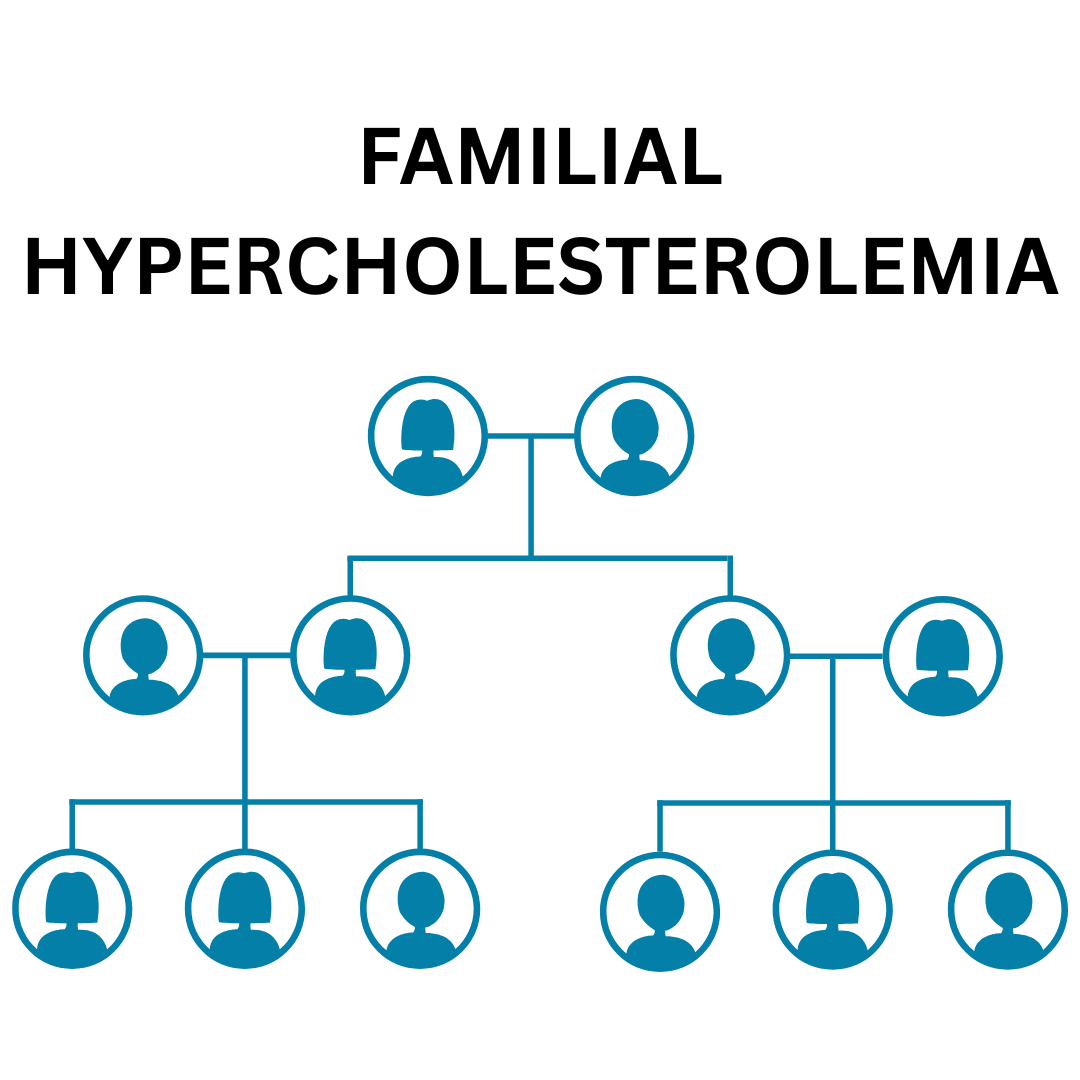I’m sure most of us have heard that high cholesterol can increase the risk of heart disease. But for some, high cholesterol isn’t just about lifestyle. It’s inherited and this condition is called Familial Hypercholesterolemia also known as FH.
What is FH?
Familial hypercholesterolemia (FH) is a genetic condition which causes very high levels of “bad” cholesterol (LDL cholesterol) in the blood. Unlike regular high cholesterol, which can be influenced by diet, exercise and lifestyle, FH is passed down through genes. This means if a parent has FH, there is a 50% chance their child will have it too.
Why is it dangerous?
High blood cholesterol can lead to plaque build up in the wall of the arteries and affect blood flow to the heart muscle. People with FH are at much higher risk of developing heart disease at a younger age – as early as in their 20s or 30s. If left untreated, FH can lead to early onset heart attacks or strokes. Studies have shown that FH risk of serious cardiovascular events is higher than non-FH type of hypercholesterolemia.
Signs & Symptoms
FH often goes unnoticed because it usually does not show obvious symptoms. However, some warning signs may include:
- Very high levels of LDL cholesterol on blood tests
- Family history of early heart disease or stroke
- In some cases, fatty deposits under the skin or around the eyes (also known as xanthelasma) or on the body (xanthoma)
How is FH diagnosed?
FH can be diagnosed through blood tests, genetic testing and family screenings.
Can FH be treated?
Unfortunately, not as FH is a genetic condition. However, it can be managed and treatment could include:
- Medication
- Lifestyle changes
Key takeaway
FH isn’t just high cholesterol – it’s an inherited condition that requires lifelong attention. If you or your family members have a history of early heart disease or unusually high cholesterol, it’s worth asking your doctor about FH.

